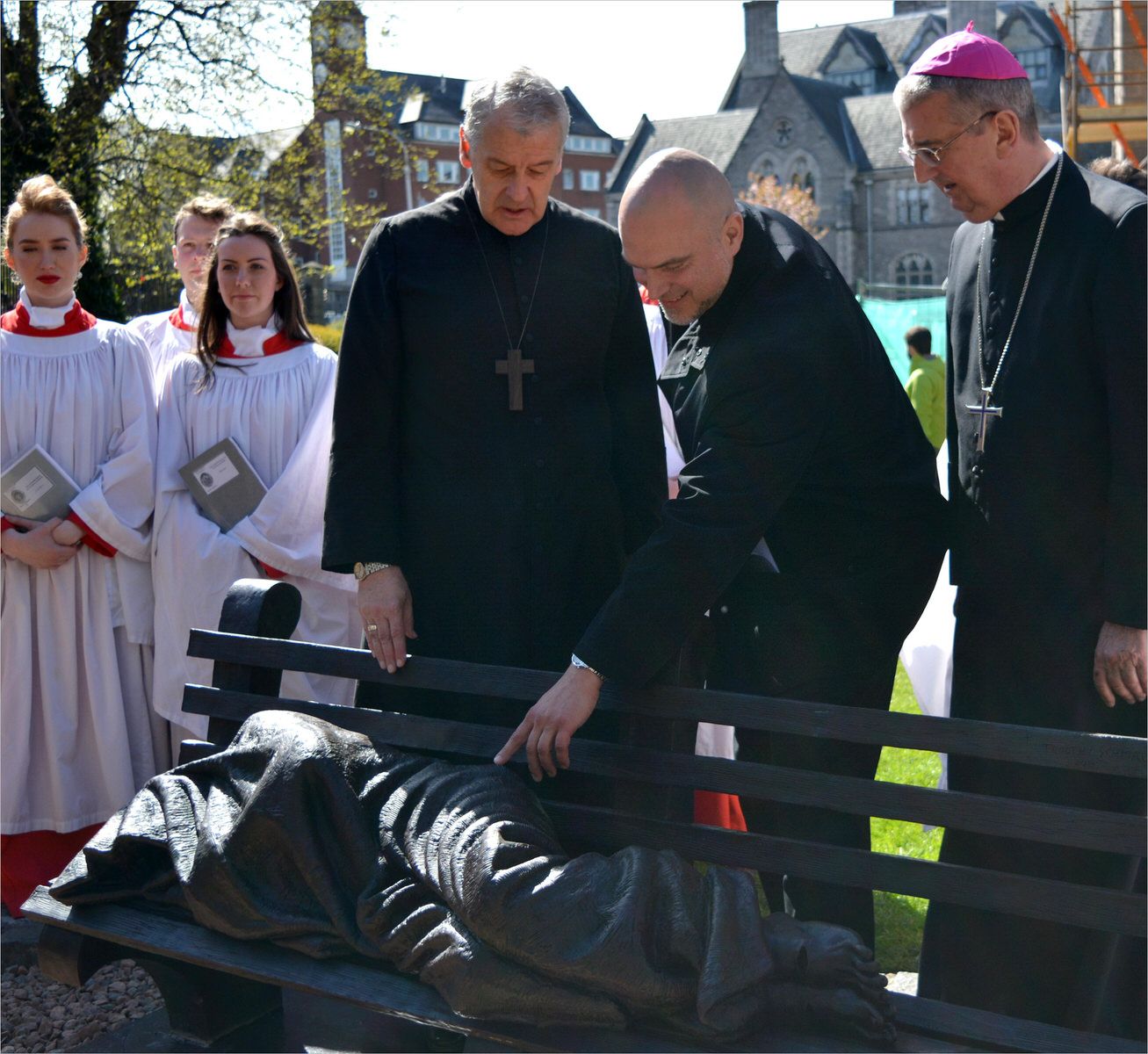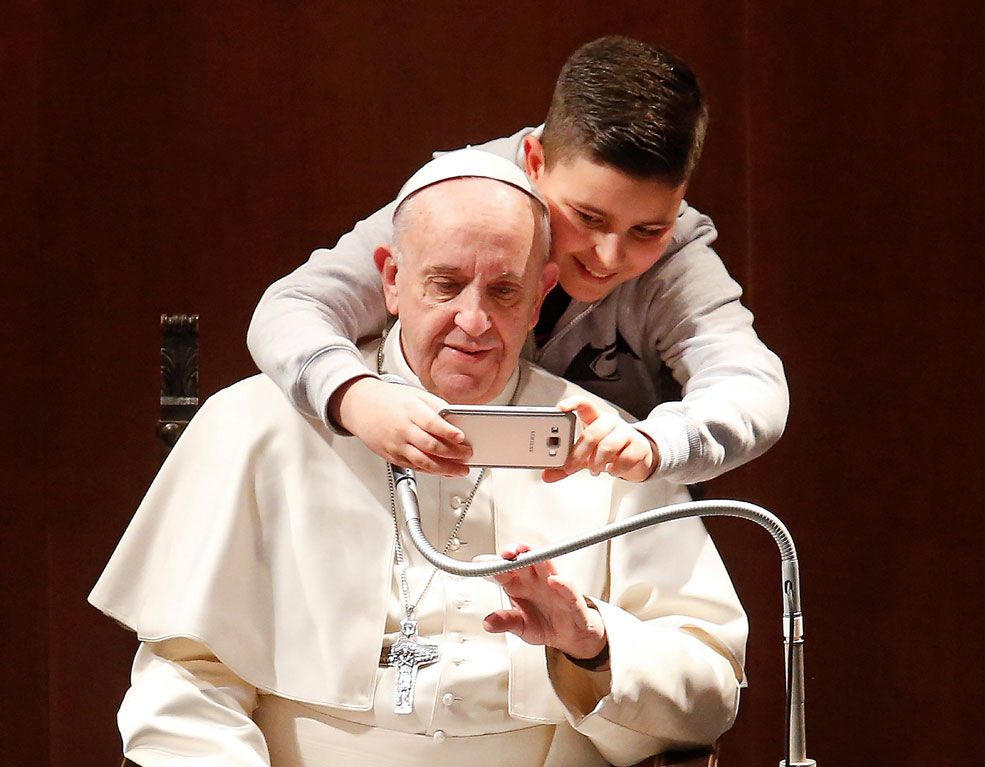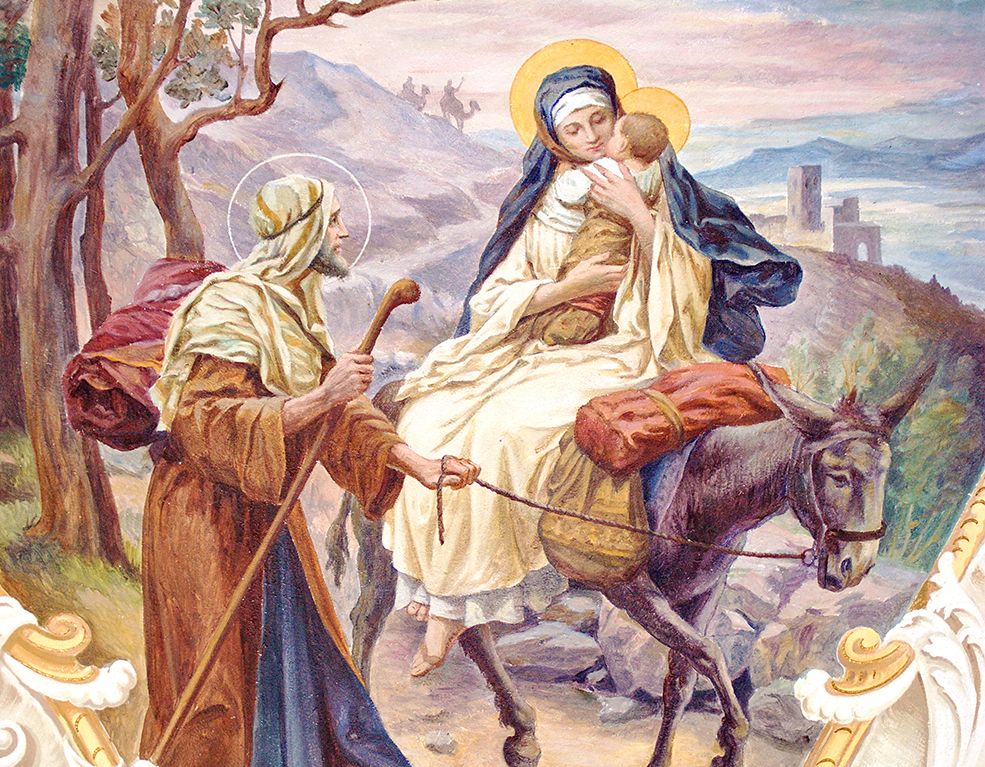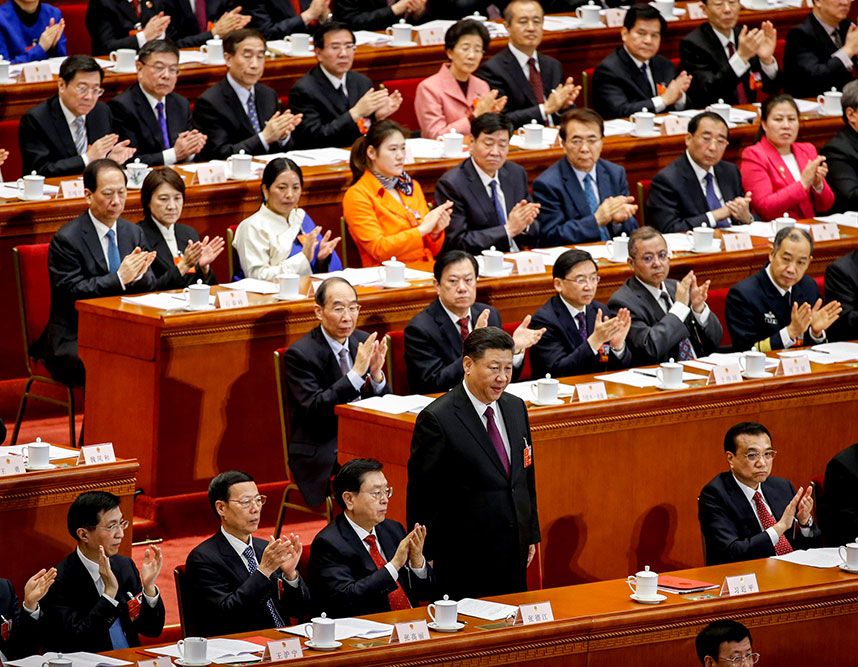The joys and hopes, the grief and anxieties of the men of this age, especially those who are poor or in any way afflicted, are those of the followers of Christ. Indeed, nothing genuinely human fails to raise an echo in their hearts. For theirs is a community composed of men united in Christ. They are led by the Holy Spirit in their journey to the Kingdom of their Father and they have welcomed the news of salvation which is meant for every man. That is why this community realizes that it is truly linked with mankind and its history by the deepest of bonds.” With these words, the Vatican II Council started the document Gaudium et Spes (#1) dedicated to the relationship of the Church with the world. After tackling the questions of what the Church is, how to live the faith, how to celebrate Christ, the participants of the Council wanted to give a strong signal that the Church was not a reality detached from life. Indeed, the Church is deeply interested in the world and needs a strong interaction with the secular society. The Council Fathers said they “yearn to explain to everyone how it conceives of the presence and activity of the Church in the world of today.”
The Council focused its attention on the whole human family; that world which is the theatre of the human being’s history, his tragedies and his triumphs; that world which the Christian sees as created and sustained by its Maker’s love; fallen indeed into the bondage of sin, yet emancipated by Christ, so that the world might be fashioned anew according to God’s design and reach its fulfillment. In Gaudium et Spes, the Church is not seen as a group aloof of reality. The Church is a community of people who share the same life of those who belong to other religions or even refuse the idea of God.
“This Council can provide no more eloquent proof of its solidarity with, as well as its respect and love for the entire human family with which it is bound up, than by engaging with it in conversation about these various problems. The Council brings to mankind light kindled from the Gospel, and puts, at its disposal, those saving resources which the Church herself, under the guidance of the Holy Spirit, receives from her Founder. For the human person deserves to be preserved; human society deserves to be renewed. Hence, the focal point of our total presentation will be man himself, whole and entire, body and soul, heart and conscience, mind and will” (#3).
To carry out such task, the Church said it needed to search the signs of the times and read them in the light of the Gospel. The people at the Council noted that “profound and rapid changes are spreading by degrees around the whole world,” and that “as it happens in any crisis of growth, this transformation has brought serious difficulties in its wake. Thus, while man extends his power in every direction, he does not always succeed in subjecting it to his own welfare. Striving to probe more profoundly into the deeper recesses of his own mind, he frequently appears more unsure of himself. Gradually, and more precisely, he lays bare the laws of society, only to be paralyzed by uncertainty about the direction to give it. Never has the human race enjoyed such an abundance of wealth, resources and economic power, and yet a huge proportion of the world’s citizens are still tormented by hunger and poverty, while countless numbers suffer from total illiteracy. Never before has man had so keen an understanding of freedom, yet, at the same time, new forms of social and psychological slavery make their appearance.
Although the world of today has a very vivid awareness of its unity and of how one man depends on another in needful solidarity, it is most grievously torn into opposing camps by conflicting forces. True, there is a growing exchange of ideas, but the very words by which key concepts are expressed take on quite different meanings in diverse ideological systems. Finally, man painstakingly searches for a better world, without a corresponding spiritual advancement” (#4). Even fifty years after these words were written, they still ring true, and they point in the right direction: the Church realizes it has a duty to work in the social area, promoting peace and justice; encouraging sharing and reconciliation; upholding the rights of people; and searching for a common understanding of the innermost spiritual questions of the human being.
The spirit of Vatican II
The first challenge the Church will have to face in the next years will be the full enactment of the decision of Vatican II. In the past decades, many conservative groups tried to bury the Ecumenical Council and push the agenda that the Vatican II did not mean what people believed it did. Even higher ups in the Church joined the idea that the Council had been a ‘media’ meeting – meaning, that media popularized a wrong interpretation of the decisions taken there. Yet, the Council is not yet ready to go into early retirement.
In reality, the Council was a true spring for the Church and the lost ground in the West is due exactly because many local Churches refused to renew themselves according to that vision: a vision of the Church as the People of God, where the Church tries to give more space to the laity, handing down to them the ministries proper to their status. And it has covered ground with long strides. It is enough to see the impressive growth of the Church in Africa and Asia in the past decades.
This concept was expressed once again in the official Catechism of the Catholic Church. There, it is written that the Church is made up by all those who believe in Jesus Christ. Some still hold that the Church can be seen as a pyramid. At the top, one finds the pope; soon under him, the cardinals; and then bishops, priests, members of religious orders and, finally, the laity. This pyramidal vision of the Church is wrong, for it does not take into account God’s will that the Church be a community where each person contributes with his/her talents and according to the vocation given by God. We could compare the Church to a circle, where each one is in communication with other believers on the same plane, where each one is enriched by others’ qualities and service.
Allowing the laity to take their place in the running of the Church gives more freedom to ordained ministers to work in the fields that are proper to their vocation: the celebration of sacraments; the study and explanation of the Word of God; and the meeting with people for guidance, support, and prayer. At the same time, a laity in charge of ministerial service within the Church will be more ready to testify for their faith within the society. The Church’s presence in education, politics, the world of finance and manufacture, is better left to laypeople.
Human rights and duties
This opens the way to the second challenge the Church faces in the world today: that of social involvement. In 2004, the Pontifical Council for Justice and Peace published the Compendium of Social Teaching of the Church. The book, a massive tome giving the rationale behind the Church’s action in the world, was extremely successful. In reading it, many Christians wondered why this teaching was never prominent in the preaching and catechesis of the Church. In fact, Catholic social teaching is the Church’s best kept secret.
Catholic social teaching is difficult to summarize because it is a complex matter, linked with changing social conditions and deepening understanding of both the work of God in history and ethical principles. Nevertheless, we can see several key principles. The whole doctrine is based on the value of human life. The human person stands out in creation – “the only creature on earth which God willed for itself” (Centesimus Annus 11). All Catholic social teachings articulate the ethical implications of a proper understanding of the dignity of the person. Each person is a child of God and has certain immunities from harm by others and deserves respect. In particular, the Church defends the right to life from conception to natural death. Defending life also means commitment to areas such as education, poverty, and immigration.
The human person is not simply an individual; he is a member of a community. Failing to acknowledge the community aspect leads to a radical individualism. The first community is the family, which is the basic unit of society. Catholic social teaching emphasizes the importance of the family, in particular, the importance of fostering stable marriages where children are welcomed and educated.
The person has a right to share in the world’s resources to satisfy the basic needs. This means that everyone has a right to property, to work, to rightful profit. This right cannot prevent others from satisfying their needs. So the Church cannot wholly accept those social theory that promote common property and social planning by a government, neither a social system where a person is entitled to own everything and no attention to the needs of the poor is given. Social justice requires attention to all and balance within a society. The common good, as Pope John Paul II noted, “is not simply the sum total of particular interests; rather it involves an assessment and integration of those interests on the basis of a balanced hierarchy of values. Ultimately, it demands a correct understanding of the dignity and the rights of the person” (Centesimus Annus 47). The common good, in other words, is not simply what people happen to want, but what would be authentically good for people, the social conditions that enable humans to flourish.
Social ministry means to bring into society the social teaching of the Church. Working for development, for justice, for the right recognition of work and the rights of the works, for instance, is an important mission of the Church in the world. Social ministry means educating people, making them aware of their rights and duties within a society. There are many examples of this work in many local Churches, as well as there are now university level colleges studying and preparing people for social ministry according to the Church’s tradition. The challenge is to continue in this work and encourage its expansion to all the dioceses of the world.
Poverty and oppression
The Church also needs to empower people to work more effectively on human rights. At the end of World War II (1945), all the nations on Earth realized that the horror of war had to be avoided. They came together to found the United Nations, and decided that avoiding conflict was one of its objectives. All were well aware of the countless grave violations of human rights that had been committed in the two World Wars and other conflicts. They also agreed there was a need to recognize and uphold human rights. For this reason, they desired a bold document that governments could agree upon; a document that would proclaim to the world those values that are common to all. Thus, in 1948, the UN issued the Universal Declaration of Human Rights.
The Catholic Church also realized the importance to work better for human rights. Ever since the Pontifical Council for Justice and Peace began its work, soon after the Vatican Council, the promotion and protection of human rights has always been an essential component of its mandate. Pope John XXIII and his successors developed the Church’s social doctrine in this area. Church doctrine coincides with national laws and international covenants on numerous points, especially the foundation of human dignity.
The Church strongly defends the universal character of fundamental human rights. This defence is done through the documents of the Church, which proclaim a value, but especially through the work of thousands of people who daily act in society. The awareness groups that help a population understand the meaning of democracy, the people committed to living near the poorest in the slums of great cities, the small Christian communities involved in local campaigns for justice, development, civil rights … all these people are the face of the Church’s commitment to human rights. Much more work is to be done until all people will really have the opportunity to live their lives in freedom, their human dignity assured, free from the anxiety of poverty and oppression.
The importance of unity
Another challenge comes from the ecumenical arena. The Church cannot forget Jesus’ teaching about the importance of unity before God. Yet, we live in a time when differences between Churches are still strong. There is also the quest of finding a common ground with people of other faiths (see box on Islam on p. 24). The divisions among Christians are a scandal. We say we believe in one Lord Jesus Christ, but then we disagree on His teaching and ways of serving Him. True, the major Churches have done a great journey of faith to come closer, and there are many examples of more and more accepting each other, of enlarging the common ground of faith. Different is the situation with the Evangelical Churches and, at least in Africa, with those communities that mingle Christian and traditional teachings.
The long journey started, once again, with the Second Vatican Council. Pope Paul VI wrote extensively on the need to work for unity. In his writings, the Pope avoided the use of name of denominations, always appealing to Christians as brothers and sisters. Popes John Paul II and Benedict XVI called on all believers in Christ to work together, especially in the field of social action. Indeed, Christians of different denomination often work side by side in helping the poor, supporting religious minorities in the Middle East, running to the rescue of refugees.
On the side of theological dialogue, the Churches have done a lot. However, the work done at theological level has not yet percolated down to local assemblies. Many still believe we are divided by doctrine when, in fact, we are not. There is need to bring this dialogue to the level of people, and encourage them to better relations with the faithful of other denominations. The Council insisted in evaluating society and events using the ‘signs of the times.’ This tool – which is mentioned by Jesus in the Gospels – is still called upon today. Unfortunately, there is no common journey in this area. It would be interesting for religious leaders, but also local communities, to sit down and share what are the signs of the time today. This would give our communities new tools to understand reality, evaluate it and assess its work in the social arena. Sharing common values would also enhance our ability to pray and act together. Fifty years after the Council, facing the time to come, the Church could really make a step forward in accepting the challenge of a journey together with other believers in the God of Love, forming a new community capable of searching what we have in common, more than what divides us.
















